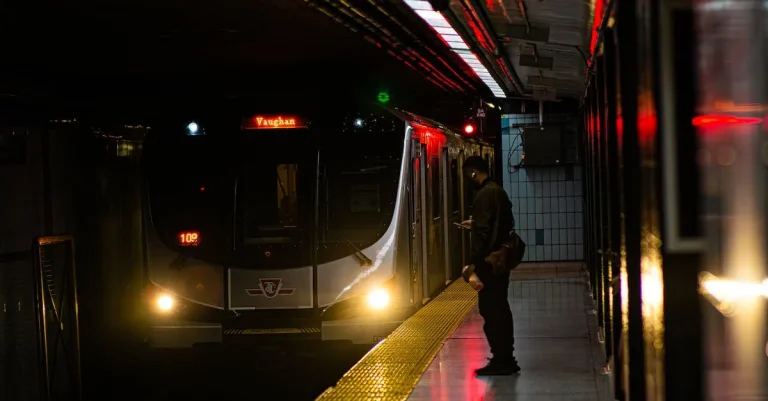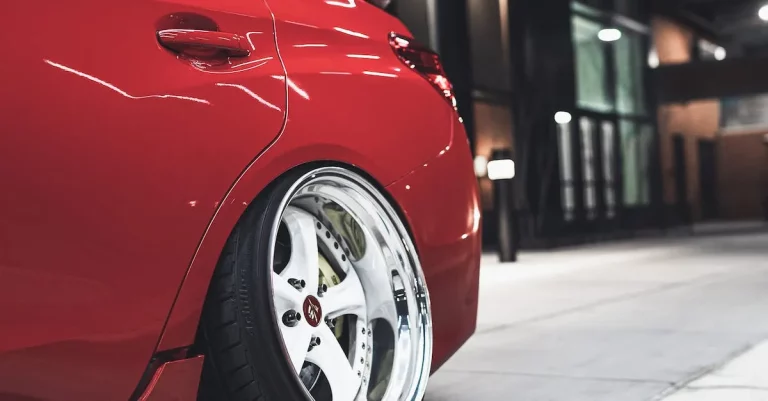Transferring Title Without A Smog Check In California: What You Need To Know
Transferring a vehicle’s title is part of the process when buying, selling or gifting a car in California. With its longstanding smog check program, you may wonder if you need a smog certification when transferring ownership. If you’re short on time, here’s a quick answer to your question: In most cases, a smog check is required to transfer a title in California. But there are some exceptions that allow title transfers without current smog certification.
In this comprehensive guide, we’ll explain when a smog check is needed to transfer a California title, exceptions that allow a title transfer without smogging, and steps to legally transfer ownership without a smog certificate.
When Is a Smog Check Required for a California Title Transfer?
For Vehicle Sales
When it comes to selling a vehicle in California, a smog check is typically required before transferring the title. This is to ensure that the vehicle meets the state’s emissions standards and is not contributing to air pollution.
The smog check must be conducted within 90 days of the title transfer, and the seller is responsible for providing a valid smog certificate to the buyer.
It’s important to note that there are some exceptions to this requirement. For example, if the vehicle is being sold to an immediate family member, such as a spouse or child, a smog check may not be necessary.
Additionally, if the vehicle is less than four model years old, it may be exempt from the smog check requirement.
Pro Tip: To ensure a smooth title transfer process, it’s always a good idea to have the smog check completed prior to listing your vehicle for sale. This way, you can provide potential buyers with the necessary documentation and avoid any delays or complications.
For Gifts and Inheritances
When it comes to gifting or inheriting a vehicle in California, the smog check requirements for title transfer differ slightly. If you are gifting a vehicle to a family member, a smog check is not required.
However, if you are gifting the vehicle to someone who is not a family member, a smog check may be necessary.
Similarly, if you are inheriting a vehicle from a family member, a smog check is not typically required. However, if you are inheriting the vehicle from someone who is not a family member, a smog check may be necessary.
Pro Tip: It’s always a good idea to check with the California Department of Motor Vehicles (DMV) or consult with a professional to determine the specific smog check requirements for your situation. They can provide the most up-to-date information and ensure that you are following the proper procedures.
For more information on smog check requirements in California, you can visit the official website of the California DMV at www.dmv.ca.gov.
Exceptions Allowing Title Transfer Without Smog Check
Intrafamily Transfers
One exception to the smog check requirement for title transfer in California is for intrafamily transfers. If you are transferring the title of a vehicle to a spouse, domestic partner, child, sibling, parent, grandparent, or grandchild, you may be exempt from the smog check.
This exception applies as long as the transfer is a gift and there is no money exchanged.
Diesel Vehicles
Diesel vehicles have different smog check requirements compared to gasoline-powered vehicles. In California, diesel vehicles that are model year 1998 and newer require smog checks as part of the title transfer process.
However, if you are transferring the title of a diesel vehicle that is model year 1997 or older, you may be exempt from the smog check.
New Vehicles
New vehicles, typically those that are less than four years old, are also exempt from the smog check requirement for title transfer in California. The rationale behind this exception is that new vehicles are considered to have lower emissions due to their newer technology and compliance with stricter emission standards.
Out-of-State Title Transfers
If you are transferring the title of a vehicle that was previously registered outside of California, you may be exempt from the smog check requirement. However, it is important to note that this exception is only applicable if the vehicle meets California’s emission standards.
If the vehicle does not meet these standards, a smog check will be required.
Permanent Planned Non-Operation Status
If you plan to place your vehicle under Permanent Planned Non-Operation (PPNO) status, you may be exempt from the smog check requirement. PPNO status means that you do not intend to operate the vehicle on public roads and highways.
This exemption is useful for vehicles that are stored or not in use for an extended period.
It is important to note that these exceptions may have specific requirements and limitations. For more detailed information, it is recommended to visit the official website of the California Department of Motor Vehicles (DMV) at www.dmv.ca.gov or consult with a qualified professional.
How to Transfer a Title Without a Smog Check in California
Qualify for an Exemption
If you want to transfer a title without a smog check in California, you may be eligible for an exemption. According to the California Department of Motor Vehicles (DMV), certain vehicles are exempt from smog checks. These exemptions include:
- Hybrid vehicles
- Electric vehicles
- Vehicles that are less than four years old
- Vehicles that are more than 40 years old
If your vehicle falls into one of these categories, you won’t need to go through the smog check process when transferring the title.
Get DMV Forms Ready
Before you can transfer a title without a smog check, you’ll need to gather the necessary forms from the DMV. These forms can be found on the DMV website or at your local DMV office. Make sure to fill out the forms accurately and completely to avoid any delays or complications during the title transfer process.
Complete Title Transfer Paperwork
Once you have the required forms, you can begin the title transfer process. Fill out the necessary information on the forms, including the buyer’s and seller’s details, vehicle identification number (VIN), and any other requested information. Double-check all the information to ensure accuracy.
It’s important to note that even if you’re exempt from a smog check, you still need to complete the title transfer paperwork correctly. Failure to do so may result in the transfer being rejected or delayed.
Submit Documents and Fees to the DMV
After completing the necessary paperwork, you’ll need to submit it to the DMV along with the required fees. The fees may vary depending on the type of transfer and the value of the vehicle. Make sure to check the DMV website or contact your local DMV office for the most up-to-date fee information.
Remember to bring all the necessary documents, such as the completed forms, proof of insurance, and identification, to the DMV when submitting the paperwork. This will help ensure a smooth and efficient title transfer process.
For more information on transferring a title without a smog check in California, you can visit the official California DMV website at www.dmv.ca.gov.
What Are the Risks of Skipping a Smog Check?
Skipping a smog check in California can have several risks and consequences. It is important to understand these risks before deciding to transfer a title without obtaining a smog check. Here are some of the main risks involved:
Fines and Penalties
One of the most immediate risks of skipping a smog check is the potential for fines and penalties. In California, it is illegal to transfer a title without a valid smog check certificate. If caught, the owner may face fines of up to $500 or more, depending on the circumstances.
These fines can quickly add up and become a significant financial burden.
Failed Smog Checks After Transfer
Another risk of skipping a smog check is the possibility of the vehicle failing the test after the title transfer has been completed. If this happens, the new owner may be responsible for repairing the vehicle to bring it into compliance with smog regulations.
This can be costly and time-consuming, especially if the repairs are extensive.
Voiding the Title Transfer
Skipping a smog check can also potentially void the title transfer altogether. If the California Department of Motor Vehicles (DMV) discovers that a smog check was not performed prior to the transfer, they may invalidate the title transfer.
This means that the new owner will not be listed as the legal owner of the vehicle, leading to potential legal complications and difficulties in selling or registering the vehicle in the future.
Contributing to Air Pollution
By skipping a smog check, individuals are also contributing to air pollution in California. Smog checks are designed to ensure that vehicles meet emission standards and help reduce harmful pollutants in the air.
By not getting a smog check, vehicles with high emissions can continue to operate on the road, negatively impacting air quality and the environment.
It is important to note that these risks and consequences are in place to encourage compliance with smog regulations and protect the environment. It is always recommended to follow the proper procedures and obtain a smog check when transferring a title in California.
Next Steps After Transferring Title Without Smog
If you have recently transferred the title of your vehicle without completing a smog check in California, there are several important next steps you need to take. Failing to comply with smog check requirements can result in penalties and fines, so it’s crucial to address this issue promptly.
Get a Smog Check ASAP
The first step you should take is to schedule a smog check for your vehicle as soon as possible. A smog check is required by the California Department of Motor Vehicles (DMV) to ensure that vehicles meet the state’s emissions standards.
By getting a smog check, you can determine if your vehicle is emitting excessive pollutants and take appropriate action to address any issues.
It’s worth noting that not all vehicles are required to undergo a smog check. Generally, vehicles that are less than eight years old or are electric/hybrid vehicles are exempt from this requirement. However, it’s always a good idea to check with the DMV or a licensed smog check station to confirm whether your vehicle is exempt.
Pro Tip: To find a licensed smog check station near you, you can visit the Bureau of Automotive Repair website.
Register the Vehicle
After you have obtained a smog check and ensured that your vehicle is compliant with California’s emissions standards, the next step is to register the vehicle with the DMV. This involves completing the necessary paperwork and paying the required registration fees.
Keep in mind that registering your vehicle promptly is essential to avoid any additional penalties or fines. Failure to register your vehicle within the specified timeframe can result in late fees and other consequences.
Pro Tip: To learn more about the vehicle registration process in California, you can visit the official California DMV website.
Renew Registration Annually
Once you have registered your vehicle, it’s important to remember that registration needs to be renewed annually. This involves submitting the necessary documents and paying the required fees to the DMV.
Renewing your registration on time is crucial to avoid any penalties or legal complications. It’s recommended to mark your calendar or set reminders to ensure that you don’t miss the renewal deadline.
Pro Tip: To find out more about the vehicle registration renewal process in California, you can visit the official California DMV website.
Remember, transferring title without a smog check in California may have consequences, but by following the next steps outlined above, you can rectify the situation and ensure that your vehicle meets the necessary emissions standards.
By staying compliant with the regulations, you can drive with peace of mind knowing that you are contributing to a cleaner environment.
Conclusion
While California generally requires a current smog certification when transferring a vehicle’s title, some exceptions allow you to legally transfer ownership without smogging first. Qualifying for an exemption can avoid costs and hassles, but be sure to understand the risks and get a smog check done promptly after the transfer.








